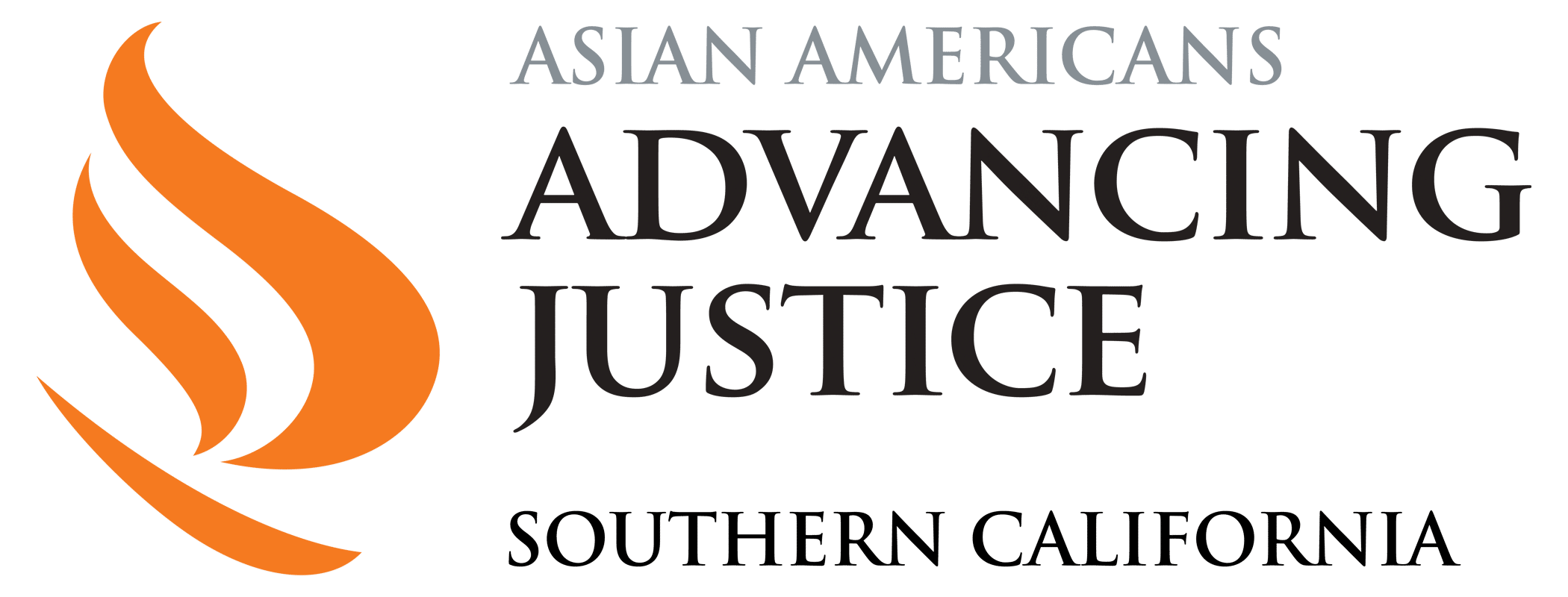Our Mission in Motion
AJSOCAL is the leading civil rights advocate for the Asian American and Pacific Islander (AAPI) community. We combat discrimination, offer free legal services and workshops in Southern California, and drive policy change from local to national levels. Rooted in the legacy of our immigrant forebears and fueled by modern advocacy, we remain steadfast in our pursuit of justice.
After decades of unwavering advocacy, our journey speaks volumes.
Dive deeper into our mission and witness the difference we make.
Watch our three pivotal videos on Anti-Asian Discrimination, Citizenship client case story, and our tireless Advocacy efforts.
Let their stories inspire, educate, and motivate you.



The Latest
Press Release

California Legislators and Nonprofit Leaders Visit Southern Border to Witness and Discuss Historic Levels of Asian Migration & Ongoing Humanitarian Needs
At the end of March, legislators and community organization leaders traveled to the Southern U.S. border in San Diego, CA spurred by the increased presence of Chinese, Vietnamese, Indian, and other Asian migrant arrivals. They discussed the challenges organizations providing humanitarian and housing services on the ground face. The dire lack of in-language and culturally competent assistance for Asian migrants creates access barriers to information, safety, food, water, and sanitation.
Blog

AJSOCAL’s 2024 Legislative Priorities: Empowering AAPI Communities Through Untold Stories
In a striking effort to champion the rights and stories of Asian Americans and Pacific Islanders (AAPI), Asian Americans Advancing Justice Southern California (AJSOCAL) released its legislative bill package for 2024 titled “Our Untold Stories.” Informed by narratives woven from AAPI lived experiences, this campaign is not merely about creating laws, it is about telling the stories of those whose voices have long been unheard and unrecognized in mainstream discourse. Once told, these stories are a tool to identify the pressing needs within our community that have yet to be addressed by policymakers.
Event Recap

Celebrating 40 Years of Social Justice
Hundreds gathered for the Asian American and Pacific Islander (AAPI) movement as Asian Americans Advancing Justice Southern California (AJSOCAL) celebrated their 40th Anniversary Gala: 40FORWARD on October 12th at the Vibiana in the heart of Los Angeles.
Nearly 600 guests, including AAPI artists, community leaders, and dedicated allies, celebrated the event’s theme: “United in Action: 40FORWARD,” to uplift four decades of unwavering commitment to the AAPI community and the continued journey of leadership, advocacy, and progress.

Featured News

Blog
Read critical pieces, get the latest updates on local rallies and events centered on Asian civil rights, and view staff statements on current issues.

In The News
View the latest news about Asian Americans Advancing Justice Southern California today.

Announcements
Stay informed about Asian Americans Advancing Justice Southern California’s work and our positions on recent civil rights and social justice issues.
Events & Workshops
Citizenship Clinics
Every Friday
In partnership with local community organizations, Asian Americans Advancing Justice Southern California hosts free citizenship application workshops where our staff and volunteers help verify eligibility for citizenship, complete the citizenship application, and prepare a fee waiver request for individuals who qualify.
41st Anniversary Gala
The gala celebrates AJSOCAL’s accomplishments throughout the year and highlights its year-round programs and services. Additionally, we honor those who have made a significant impact on the community. The event includes elected officials, community partners, members of the Asian American bar associations and leaders from the arts, culture, and media as well as corporate, legal, and nonprofit sectors. It has become one of the most anticipated fundraising events in the Asian American, Native Hawaiian, and Pacific Islander communities.
BYSTANDER INTERVENTION TRAININGS
In these virtual workshops hosted on Zoom and co-sponsored by Asian Americans Advancing Justice Southern California and Right To Be (formerly known as Hollaback!), you’ll learn how you can intervene effectively as a bystander without ever compromising your safety.
Follow Us
ENGLISH SOCIAL MEDIA















